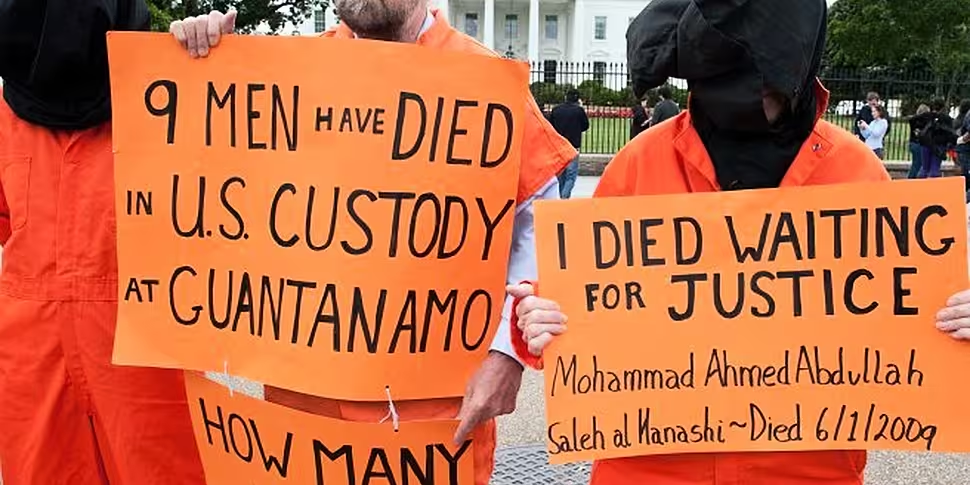The Guantanamo Bay prison facility at the US naval base in Cuba marked its 12th anniversary in January. 775 prisoners have passed through its doors; 155 remain; 77 of whom were cleared for release nearly 4 years ago.
Barack Obama entered an order to close Guantanamo Bay aka Gitmo on his first day in office in 2008 yet there is no clear end for the facility in sight.
Besides detaining several innocent men, Guantanamo Bay prison has an even more pernicious record - widespread claims of torture, including force-feeding of detainees on hunger strike, also mark the prison’s history.
However, a number of important legislative changes agreed in Congress last December could mean that congressional obstacles no longer prevent the closure of Guantanamo Bay.
That’s according to the most senior human rights lawyers who have for the last twelve years represented a number of those detained at Gitmo.
Increase in detainee transferral
Last December, a number of provisions were agreed by US Congress which eased the restrictions on transferring detainees out of the prison, either by sending them back home or sending them to a host country for their own security.
Initially, Congress had imposed restrictions which blocked funding for the transfer of any Guantanamo detainee either to the US or to other countries unless the Defence Secretary gave personal guarantees that the released prisoner would never engage in terrorist activity.
This was an intentionally high burden to place on the defence secretary, but the process has now been simplified so that the administration can now go ahead with a transfer if a host country will (1) "substantially mitigate" the risk that the detainee will engage in any terrorist activity, and (2) that the transfer is in US national security interests.
Currently, there are three categories of prisoners in Guantanamo Bay: one group is the 77 left who are cleared for transfer, the other group is populated with people like Khalid Sheikh Mohammad and the 4 other suspects currently appearing at the military commissions - their charges related to the masterminding of 9/11.
There are also a number of other detainees that, while there is no hard evidence against them, would likely result in prosecution. There are said to be fears in the intelligence community that these prisoners are in some way dangerous and likely to engage in terrorism at some point.
Barack Obama sought to have Gitmo detainees prosecuted in US Federal Courts – a process which could have least, it is argued, provided the accused with a fair trial. He reconsidered this following huge public outcry and chose instead to continue with the military commissions initiated by the Bush administration.
President Obama last year also lifted a moratorium that banned the transfer of prisoners to Yemen, the country of origin for over 50 detainees.
The politics of closing Guantanamo
So, it appears that the issue is not so much legal as political, and many experts in Washington believe the President Obama isn’t prioritising Guantanamo because and he isn’t willing to use up valuable political capital fighting mainly Republicans who wish to see it stay open.
Thomas Wilner, human rights attorney says Barack Obama could “close Guantanamo if he wanted to”. He also says the media as well as the general public show little concern for the plight of the innocent Gitmo detainees, partly, he says is because they are Muslim.
Mr Wilner also discussed the cases he defended, in particular how he was able to use the writ of habeas corpus - which ensures that any person being held in custody must be charged within a certain period of time or released from detention where there is insufficient evidence to charge them – to secure release of a few of his clients.
However, the ability to use habeas corpus as a defence has since been suspended in practice for Gitmo detainees despite a landmark ruling by the Supreme Court supporting the constitutional right to habeas corpus for Guantanamo detainees.
The suspension relates to their status as enemy combatants in a global war on terror which trumps the right to habeas.
Wilner spoke about the two remaining clients that remain in Gitmo: Fauzi Al-Ouda and Faiz Al-Kandari.
Promises, promises
In a number of speeches, not least one on counterterrorism at the National Defence University in Washington last year, President Obama again reiterated his promise from the start of his first presidential term that he will close down Guantanamo.
Last July he appointed Cliff Sloane, a well respected Washington lawyer as envoy to Gitmo and tasked him with reopening the State Department's ‘Office of Guantanamo Closure’, which has been dormant for a number of months.
Cliff Sloane insists his office is making progress in particular where host countries taking detainees are concerned.
According to Thomas Wilner, there is an attitude among some people in the US that Guantanamo detainees, innocent or not, are legitimate collateral damage in the war on terror. Yet a high level of cross party support for the closure of Guantanamo prison exists particularly from hawkish republicans like John McCain, Henry Kissinger and Robert Gates.









